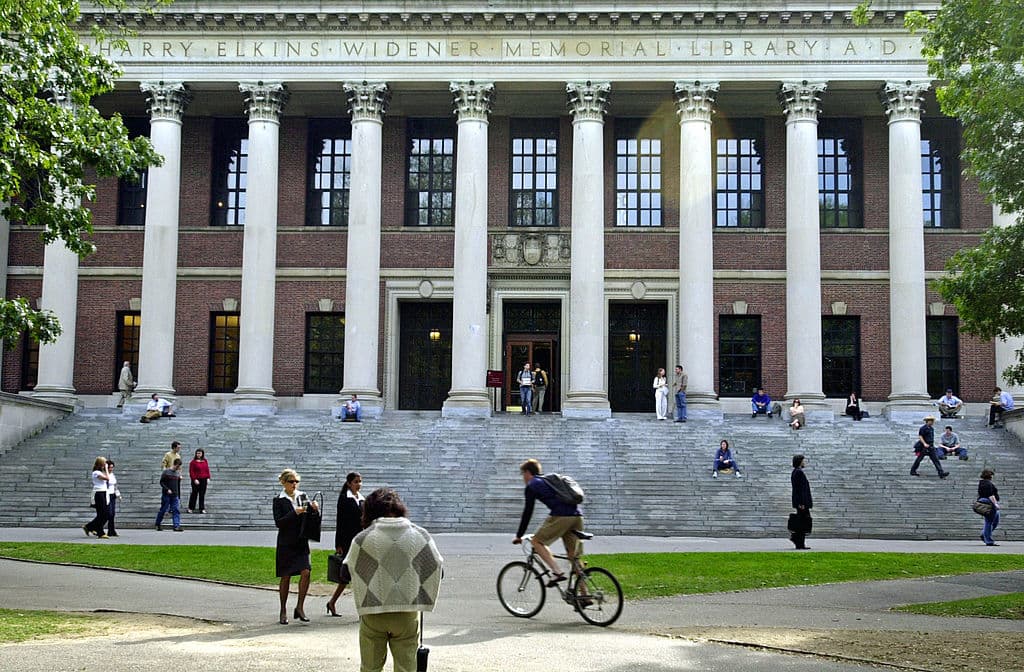The Red Line: Supreme Court’s Decision on Harvard Misses the Most Consequential Problem on Campus
The country’s leading university has become an ‘indoctrination factory’ for the Democratic Party.

The Supreme Court decision striking down affirmative action in college admissions is a triumph for fairness and the quintessentially American belief that the best man or woman should win. Yet, it is largely an empty victory, and it misses the most consequential issue concerning diversity on college campuses today — political diversity.
The basis for the Court’s decision is that Harvard and University of North Carolina, failed to provide a “measurable and concrete” justification for exempting their race-based admissions policies from the Equal Protection Clause of the 14th Amendment. In essence, the defendants lost the case because their policies are too subjective and vague.
Yet the flip side is that, for the same reason, the decision cannot be enforced. A decision that cannot be enforced is no decision at all. Harvard and many other colleges have done away with the only truly objective — “measurable and concrete” — metric traditionally used in college admissions, namely standardized test scores, primarily SAT and ACT scores.
So now college admissions has become an entirely subjective process. A purely subjective process is inherently unfair. Within a few hours of the court’s decision, Harvard announced its defiance, saying in Delphic words that the “principle” that Harvard follows “is as true and important today as it was yesterday.”
If Harvard thinks that its “principle” is diversity, then Harvard suffers from clinical self-unawareness. For it is anything but diverse. It is exceedingly liberal. The student newspaper, the Crimson, in its most recent annual survey found that “More Than 80 Percent of Surveyed Harvard Faculty Identify as Liberal.” Just 1.5 percent of the faculty identifies as “conservative.”
When I attended my Harvard College reunion a year ago, I heard that the Crimson had surveyed the graduating class, finding that just seven percent identified as conservative. So I asked the president of Harvard, Lawrence Bacow, whether this represented an issue worthy of his attention and whether the College should do something about it.
“I will tell you,” he responded, “what I told Senator Cruz when he accused us of being an indoctrination factory. I told him there were 14 graduates of Harvard in the U.S. Senate, eight of whom were Republicans.” Mr. Bacow, apparently believing that was dispositive and, in any event, being uninterested in engaging on the point, turned his back and walked away.
His data, though, were inadequate, even inaccurate. In a 2020 article, the Crimson reported that, of the 40 Harvard graduates elected in 2020 to the House of Representatives, just six were Republicans. Harvard ousted from a Kennedy School advisory board the most famous of its GOP graduates in the House, Elise Stefanik, chairwoman of the Republican conference.
No sooner did the Supreme Court conclude that Harvard had been violating the Constitution than the university’s president-elect, Claudine Gay, said in a video that it was a “hard day.” She added that “a thriving, diverse intellectual community … is borne out in Harvard classrooms” where our students can “put their ideas into conversation with other points of view.”
Would that her aspirational statement were true. How can it be when students and faculty are overwhelmingly of one political persuasion. If the Crimson surveys are accurate, class discussions pit one conservative against 14 predominantly liberal classmates under the tutelage of a liberal professor or instructor — one student against 14 classmates and a discussion leader.
Inevitably, Harvard’s political uniformity affects virtually everything, undermining intellectual honesty, and leaving the institution and its students and faculty — and, in my experience, its president — defending ideological purity and rather than engaging in genuinely open discussion.
My own hope is that Harvard becomes more racially diverse based upon a race-blind, merit-based admissions process. And re-adopts the SAT and ACT in acknowledgement that there should be a “measurable and concrete” way to assess the fairness of its admission process. And addresses its extreme political conformity. Harvard’s admissions process would be a good place to start.

